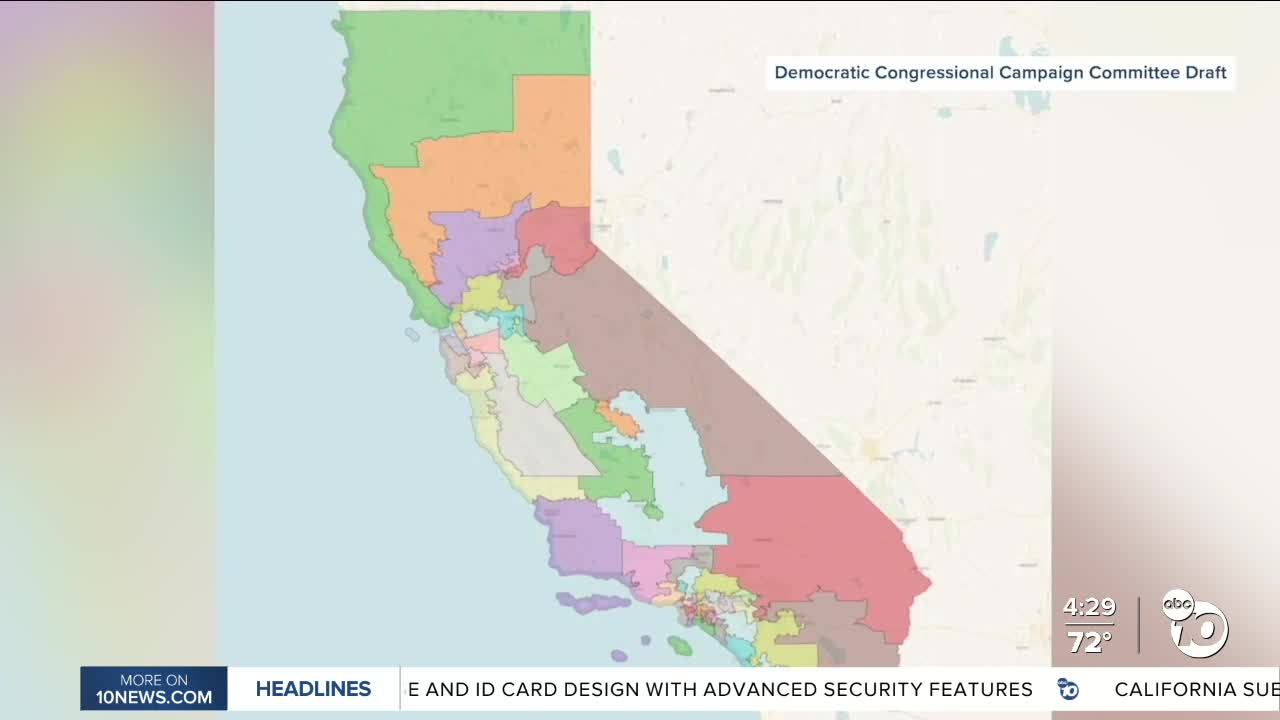California voters will decide in November whether to approve Proposition 50, which would redraw the state's congressional maps in response to Texas' redistricting efforts. But if the measure passes, supporters and opponents are preparing for what could be a lengthy court battle.
The proposition promises to redraw California's congressional districts, a move supporters say would counter Republican gerrymandering in Texas and set a national example. However, legal experts warn that approval could trigger multiple constitutional challenges.
"If Proposition 50 passes, there are likely to be several legal challenges. Some of these have been raised already before the California Supreme Court in a petition to try and keep Prop 50 off the ballot. So there are seven I've identified as possible issues," said Laura Halgran, a retired San Diego Superior Court judge.
Halgran has identified potential legal challenges that critics could pursue if the proposition passes. These challenges range from constitutional violations to procedural problems.
Constitutional concerns over voting equality
The most serious challenge involves the fundamental voting rights principle of "one person, one vote" — the idea that every person's vote should carry equal weight.
"The goal of having equal congressional districts is that each vote is equal. And for example, if you had District A with a population of 1,000 and District B with a population of 500, the value of the votes in District A would be diminished, and the value of the votes in District B would be enhanced," Halgran said.
Critics argue that using five-year-old census data to draw new districts could create unequal representation. Some districts might have grown significantly while others shrank, making votes unequal across different areas.
Timing and procedural challenges
Another potential challenge involves timing. The legislation creating these new districts existed for only four days before lawmakers voted, potentially violating the state constitution's requirement that bills be available for public review for 30 days.
Supporters counter that Proposition 50 is about fairness, arguing California has a responsibility to set a national standard against partisan gerrymandering. They say these challenges are weak because the measure amends the constitution, and courts rarely overturn voter-approved constitutional amendments.
Legal timeline could delay implementation
The biggest question may be the timeline. Even if voters pass Proposition 50, court challenges could drag on for years.
"Part of the concern for people who favor Prop 50 would be if the matter is tied up in court for a long time, the court might issue a stay and not allow it to go into effect. So for the people against the proposition, to them, there would be value in litigating this for a long time," Halgran said.
This could mean the current congressional maps stay in place through the 2026 midterm elections, even if voters approve the changes this November.
"I'm sure creative litigants can come up with more. And one thing is certain, if Prop 50 passes, there will certainly be litigation in court," Halgran said.
Fast-track to California Supreme Court
Proposition 50 includes a provision that sends any challenge directly to the California Supreme Court, bypassing lower courts to expedite the process. However, with federal voting rights issues at stake, the final decision could end up before the U.S. Supreme Court.
For voters, the stakes go beyond just this year's ballot. The outcome could decide not only who represents them in Washington, but also whether other states follow California's lead in redrawing their maps mid-decade.
This story was reported on-air by a journalist and has been converted to this platform with the assistance of AI. Our editorial team verifies all reporting on all platforms for fairness and accuracy.




